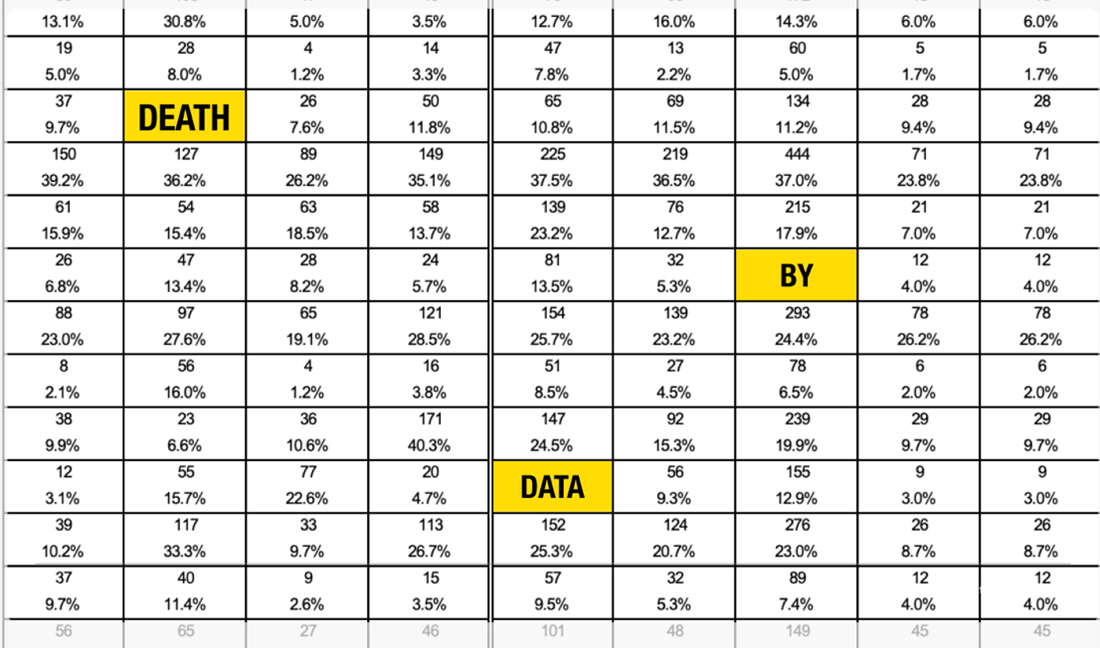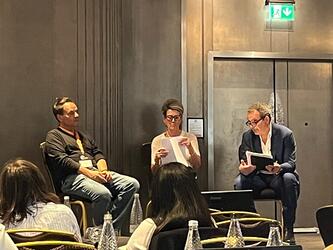What does it mean to tell a story with data?

No-one believes a story without data, but no-one believes data without a story. Storytelling is how we make sense of the world. It’s how we remember, how we relate, and how we drive action. In marketing and advertising, its power is well understood for brand building effects. But when it comes to research, and in particular quantitative research, storytelling often gets left behind.
The ultimate goal of commissioning research is to create impact. But for insights to have impact on consumers, they must first move the business. Storytelling is what brings stakeholders on the journey, brings meaning to numbers and makes action feel imperative.
Qualitative research tends to do this naturally. The inclusion of photographs, videos and quotes leads to an acknowledgement of the human reality behind the work. Unfortunately, when it comes to data, it’s very easy to lose sight of the human experience it represents. We end up with spreadsheets, endless charts, and decks that feel more like data dumps than narratives. The signal gets lost in the noise.
So how do we bring the story back into the numbers?
- Forget the haystack, focus on the needle
Good storytelling doesn’t drown in numbers; it brings them to life. In fact, more data can often mean more confusion. The impulse to include every data point, every chart, every slice of a dataset can quickly lead to what many know as ‘death by data’, a presentation so packed with numbers that its meaning gets lost entirely.

Data storytelling requires a clear research question and a disciplined approach. What are we trying to understand, solve, or provoke? The input matters just as much as the output. Being single-minded about the objective sharpens the questionnaire design and allows for a more coherent, compelling narrative.
This also means being choiceful in what we show. Just because all the data is available doesn’t mean it all needs to be seen. To truly make an impact, the story must be accessible. Not everyone in an organisation is data fluent, but everyone needs to be engaged. That means stripping away jargon, simplifying visualisations, and using clear, relatable language to explain what the data means, not just what it shows. A good data story should feel exciting — and not just to the research or insights team, but to marketers, strategists, creatives, and executives alike.
- Use context as the compass
Numbers carry weight because they feel objective, but they rarely tell the full story on their own. Every data point is shaped by the way it’s collected, analysed and framed. Without the right context, even the most striking statistic can fall flat or be misunderstood.
To move from data to meaning, we need to guide stakeholders through the numbers. That means answering:
- Why does this data matter? What’s the significance behind the numbers? What do they suggest, not just state?
- How should we interpret this? Are we looking at a trend, an outlier, or a moment of change?
- What context helps make this clearer? Benchmarks, comparisons, or real-world reference points can turn abstract figures into tangible insights.
- What contradictions or tensions emerge? Sometimes, the most interesting insights are the ones that challenge assumptions and hint at new opportunities.
Data without context is just noise. But when we connect the dots, it becomes something more: a source of insight, inspiration, and even surprise.
- Make meaning, not just sense
Every data point represents someone’s lived experience. Yet, the larger the dataset (and let’s be honest, anything over 100 can feel abstract), the harder it becomes for our brains to truly grasp what we’re seeing. As researchers and insight professionals, it’s our job to bring those numbers to life; to make them easy to process and emotionally resonant. Our brains are built to compare, not count, which is why meaning and relatability matter more than sheer volume.
This responsibility becomes even more urgent as our industry accelerates into the age of AI and synthetic data. AI is brilliant at finding patterns and generating summaries that make sense. But sense is not the same as meaning. AI struggles to reflect the inconsistencies and unpredictability that define real human behaviour. It can flatten nuance in favour of neatness, missing the emotional depth and contradictions that often contain the most insight.
Synthetic data brings a similar risk. By smoothing out outliers and rounding off rough edges, it can unintentionally reinforce stereotypes and overlook emerging, unconventional behaviours. In trying to replicate humanity, it often ends up erasing the very things that make us human.
That’s why good data storytelling matters; it brings the messiness back to the surface. Quantitative data can be powerful, but only when paired with empathy, interpretation and a reminder that people are never as simple as the numbers suggest.
Ellie Webster is head of data strategy and The Measure at The Mix Global.

We hope you enjoyed this article.
Research Live is published by MRS.
The Market Research Society (MRS) exists to promote and protect the research sector, showcasing how research delivers impact for businesses and government.
Members of MRS enjoy many benefits including tailoured policy guidance, discounts on training and conferences, and access to member-only content.
For example, there's an archive of winning case studies from over a decade of MRS Awards.
Find out more about the benefits of joining MRS here.













0 Comments